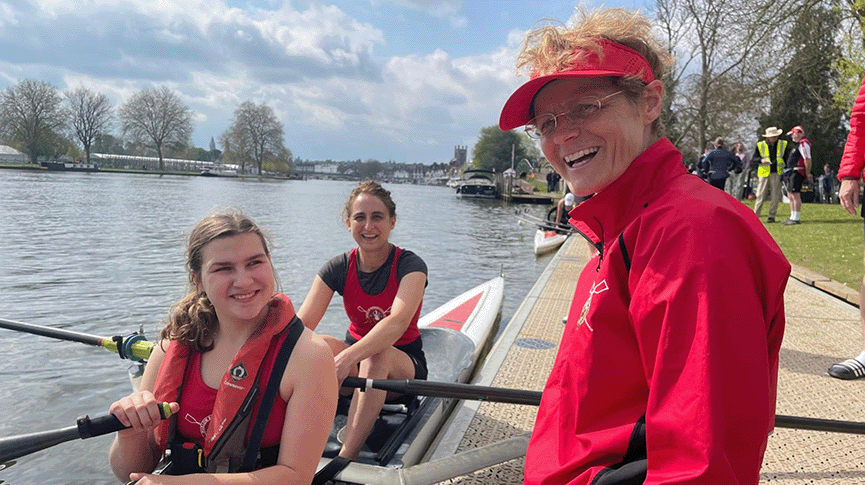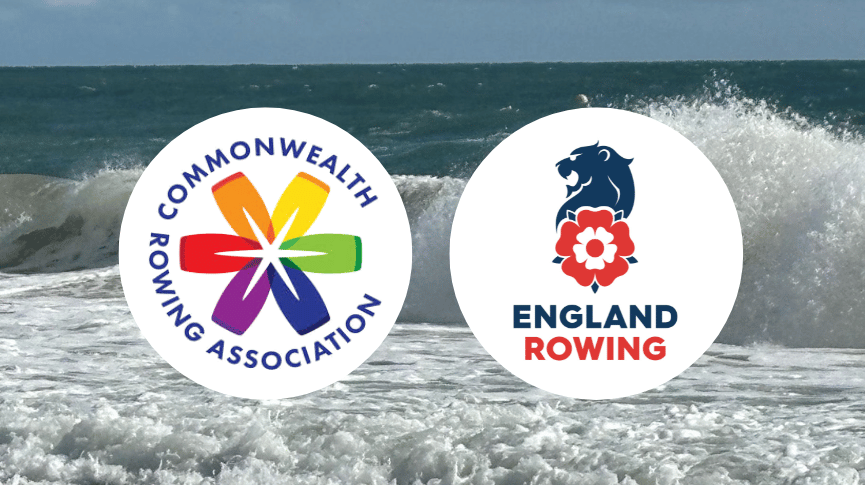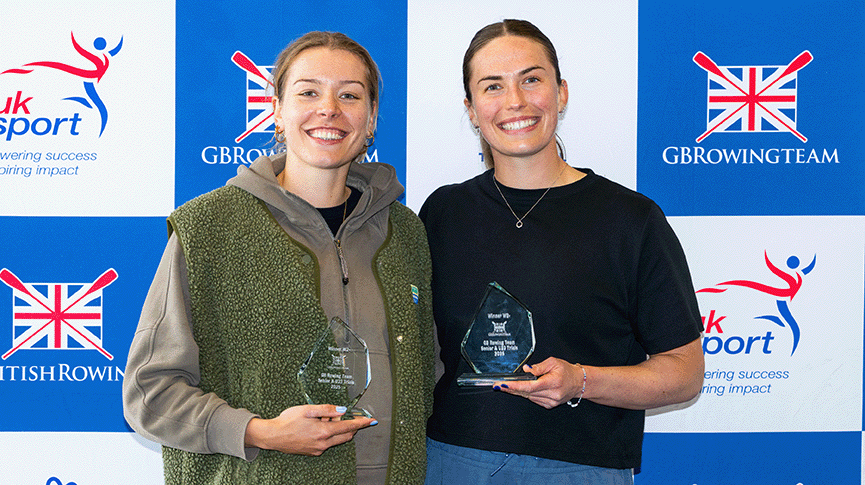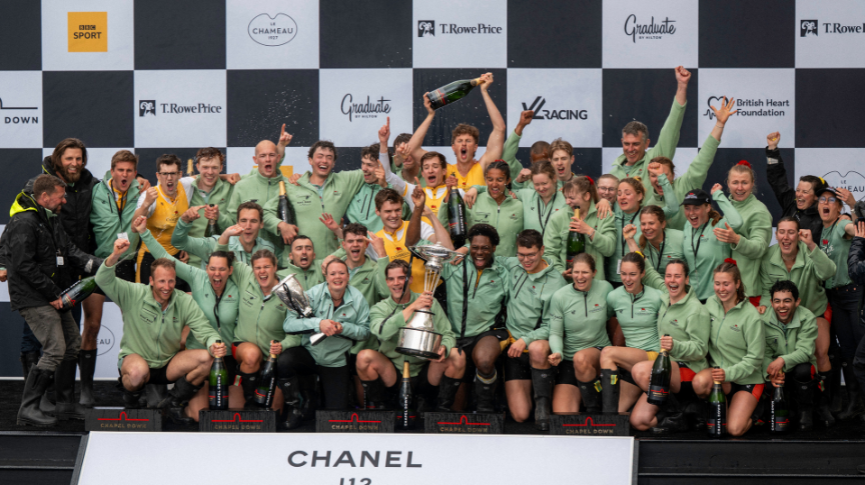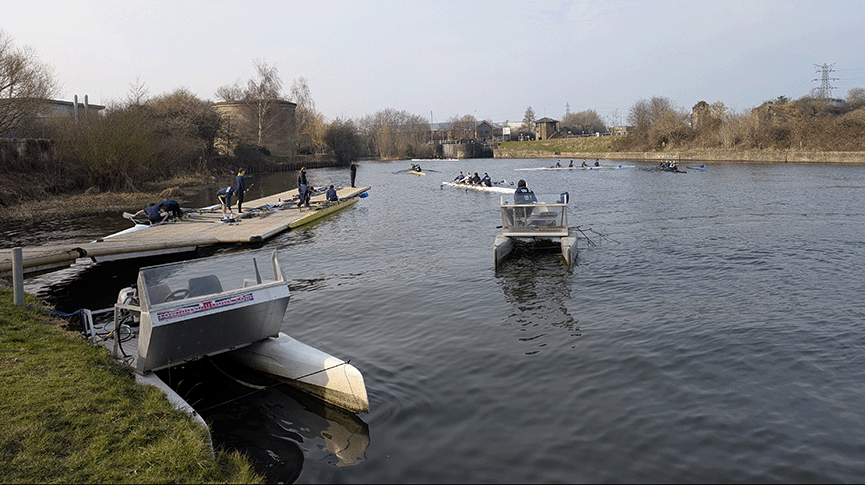Rowing the Northwest Passage in a garage!
Tyne rower Phil Kite recently rowed for two weeks in his garage to fundraise for charities supporting the NHS, as part of a Northwest Passage 2021 expedition challenge
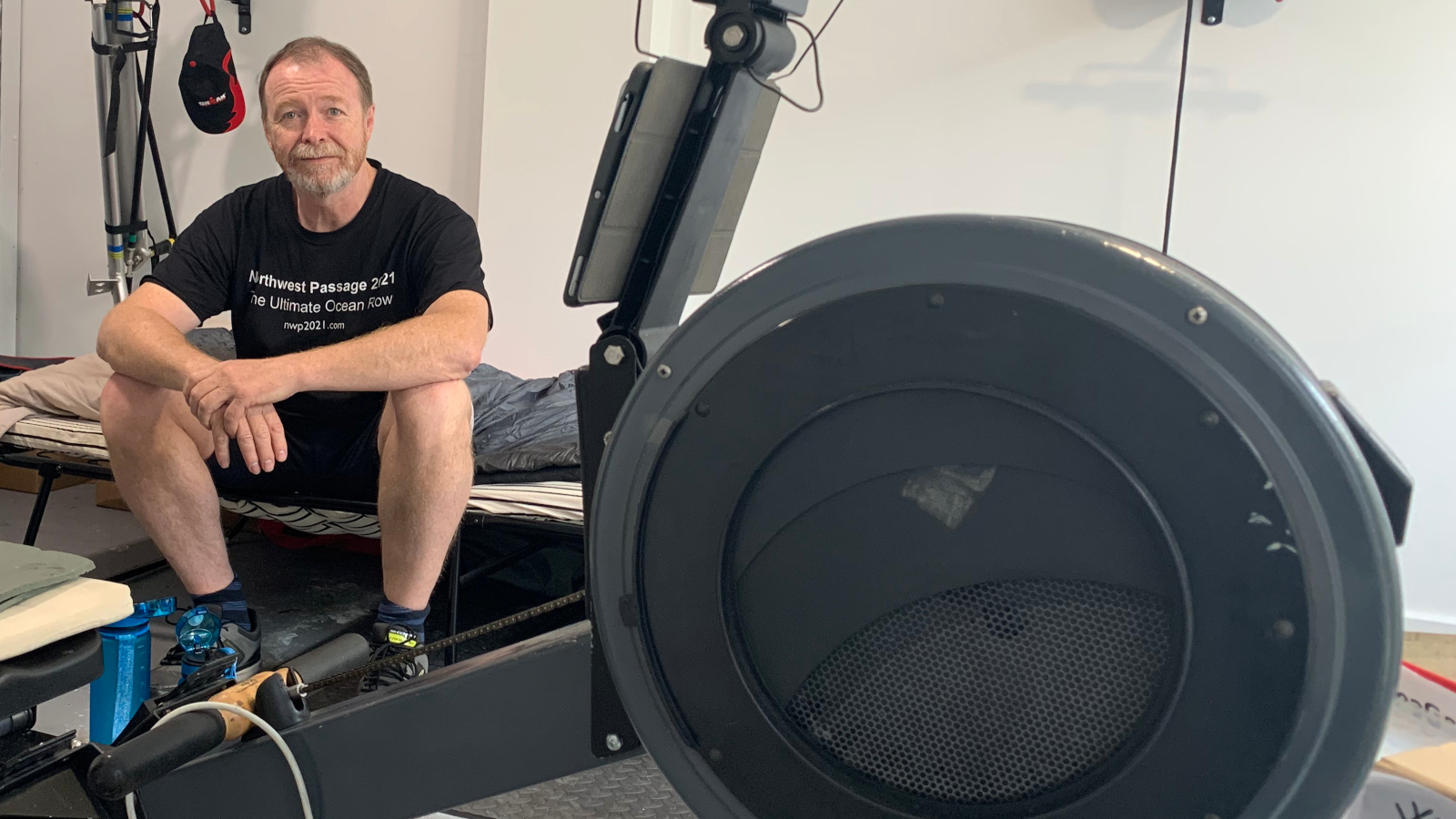
Phil pictured in his garage
Earlier this month, Phil Kite and teammates from the Northwest Passage (NWP) 2021 expedition rowed 2,000-miles – the distance of the Arctic route between the Atlantic and Pacific Oceans – on their rowing machines, finally completing the challenge on 17 May.
Eleven of the team – including GB rower Ollie Cook – rowed 12 hours each day in between working, while Phil rowed the other 12 hours of the 24 hour day, on a gruelling two-hours on, two-hours off cycle. To add even more to the pressure, he live-streamed his row in the garage.
Since taking up rowing in 2013 at Tyne ARC, Phil has caught the ocean rowing bug, taking part in the 2018 Talisker Whisky Atlantic Challenge – where his team became the fastest mixed four to row the Atlantic – and he is now signed up to next year’s NWP expedition, led by record-breaking ocean rower and explorer Leven Brown.
Phil came up with the Row in the Garage challenge as a way that the NWP 2021 team could support the charities struggling to raise funds because of Covid-19.
We caught up with him to find out more…
How did your Row in the Garage go?
Phil: We achieved our goal of rowing 3,218km, 2,000 miles in just under 14 days. Each of my NWP teammates rowed one to two hours each day and averaged close to 14km per hour which was our target. Over my 12 hours I averaged 84km. It was a great team effort.
What was the hardest thing?
The erg’s seat! It became pretty uncomfortable and I ended up using a cushion and cut out sections of a yoga mat to help ease the pain. The worst shift was 2am-4am, particularly knowing that, once finished, I would have to get up again and row at 6am for another two hours. It was relentless.
How did it compare with rowing across the Atlantic?
On the face of it rowing in a garage and rowing on the ocean are vastly different. You aren’t going to be washed overboard in a garage, but of course they have many things in common, both are endurance events, tough on the mind and body.
Whilst alone in the garage I was still part of the NWP team and we kept in contact on WhatsApp, motivating and driving each other, to achieve our daily goals.
I don’t think I would enjoy a solo ocean row as the team environment is important to me. Of course, the biggest difference is in the garage I didn’t have to use a bucket!
Did you ever feel like turning the live-streaming off?!
Knowing others may be watching helped drive me during the difficult night shifts. Dave, the chairman of my rowing club Tyne, regularly texted me at 3am with encouragement.
Of course, the biggest difference is in the garage I didn’t have to use a bucket!
The only time I was late for a shift was when I woke up at 5.45am on day 10 – I’d had a coffee and had fallen asleep sitting on my camp bed. Bob, who runs the Row for Life Coastal Rowing Centre in Dorset, saw this on the live stream and sent me a message to wake me up. So, the live stream was an asset.
What kept you going?
Once I have said I will do something, I don’t like to let people down, so the fear of failure kept me going. That and the support of the team who were having to work and row.
How did the rowing community’s messages help?
Spending so much time in the garage, it was great to get messages of support over Facebook and Twitter.
Having my friends send words of encouragement, especially between 2am and 6am, was great. Huge thanks to Kate O’Sullivan for her tweets, and to Dave and Bob for keeping me going through the night and early morning shifts.
I realised I was doing something a bit daft when Sir Matthew Pinsent described it as brutal in a supportive tweet and GB rower Ollie Cook, one of my NWP team mates, called it an incredible feat of mad endurance.
What was the first thing you did after finishing the row and leaving the garage?!
Leven Brown, the expedition leader of the NWP 2021 row, did a live-stream interview on Facebook and my wife Lydia and niece Emma, who was on lockdown with us, gave me a chocolate cake and champagne. After that I slept for a few hours, then enjoyed a curry. I must admit I was completely knackered.
Leven describes the Northwest Passage as the expedition of our time
How did you get involved with the NWP2021 expedition?
Leven Brown had helped us prepare for our Atlantic race and the NWP 2021 is his brainchild. When I heard he was putting together a team I immediately signed up.
A five-time ocean rowing world-record holder, Leven describes it as the expedition of our time as we aim to be the first to successfully row the passage in a single season. We are looking to report on the environment we encounter, the weather, ice and wildlife.
In recent years the Northwest Passage has opened up, as the ice has melted due to climate change, but this doesn’t mean it will be sufficiently open in 2021 for us to achieve our goal.
Leven plans to take three boats and 15 crew members, giving the expedition the best chance of success. The crew members, whilst coming from many walks of life, are all adventurers and explorers and include men and women who have climbed mountains, walked the poles, rowed oceans and dreamt of being part of such an expedition.
There can’t be a more amazing place to row: icebergs, whales, polar bears, it has the lot
What draws you to the Northwest Passage?
The Northwest Passage is iconic. Over the centuries, explorers have tried to traverse the 2,000-mile Arctic route which links the Atlantic with the Pacific Ocean, but it was blocked by ice.
It was made infamous by the expedition led by Sir John Franklin in 1845, where two ships HMS Erebus and HMS Terror attempted to traverse the passage, but sadly all 129 crew were lost.
Now, due to climate change the passage is opening up during the Arctic’s summer and the race is on to be the first to row the route. There can’t be a more amazing place to row: icebergs, whales, polar bears, it has the lot. The NWP 2021 team is one of the most experienced ever assembled and has a great chance of success.
If you want to know more about the Franklin expedition, I suggest you read the book Erebus: the Story of a Ship by Sir Michael Palin.
Finally, can people still donate to Row in a Garage?
I would love the rowing community to help us make a difference. You can donate here >>>
You can follow Phil’s exploits on Twitter at @Team_Tyne and the team’s journey on Facebook at NWP2021 and on their website nwp2021.com


